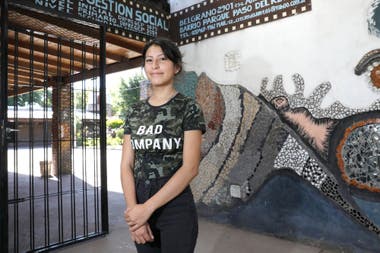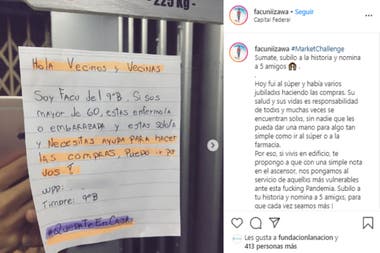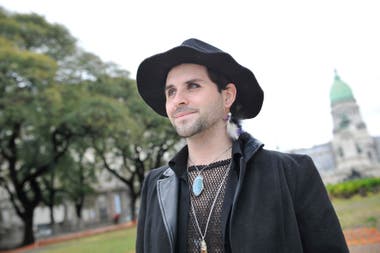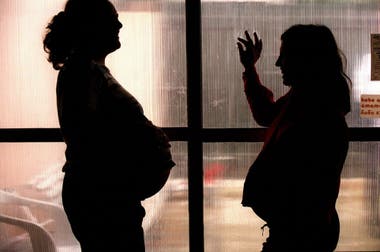
Teen pregnancy is a fact all over the world. Product of violence, abuse or lack of information, according to WHO by year give birth to 16 million girls aged 15 to 19 and approximately 1 million girls under the age of 15, especially in low- and middle-income countries. This, clearly, in addition to violating their rights, conditions their social, educational and economic development. For this reason, from September 21 to today, the Week for the Prevention of Unplanned Pregnancy in Adolescence that seeks to raise awareness about this problem.
In Argentina, the rates are very high. Per hour, 10 teens give birth and between the highest rates of girls and adolescent mothers is the province of Jump, which leads the figures in the NOA and at the country level is in fourth place, after Chaco, Formosa and Misiones.
In this context, since before graduating as a social worker, Lorraine Soza has been working on the Salta vulnerable neighborhoods together with Manos, an association created in 2006 that thinks of art and sports as tools for social transformation, and that addresses two fundamental problems in the world of young people: addictions and sexuality, the latter understood above all as a link . From the work in the neighborhoods, they quickly began to see that a consequence of this way of relating that adolescents had was the early pregnancy, and also all that this implies and is behind: sexual abuse and domestic violence.
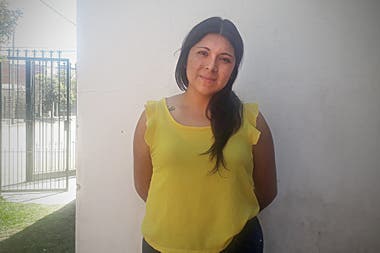
An incentive to continue
Lorena is 24 years old and is the coordinator of the Manos territorial area, one of the strengths of the NGO together with the research area, and is in charge of the Active Generation Program, which develops three projects: Deal with Art, Opportunities and Officiarte. The first of them has just won one of the awards given by the Avon Foundation to make visible the solidarity work of women throughout the country. Among more than 150 initiatives, Lorena and Manos will receive $ 200,000 that they plan to invest in technology and human resources to provide support and ensure access to new work spaces among young people, who due to the Covid-19 pandemic had to move to virtuality . “Deal with Art started at the beginning of 2019 and seeks to enable training spaces for adolescents and young health promoters, so that they themselves can create other spaces for other boys, where they can discuss what is happening in terms of their interpersonal relationships, from the perspective of gender and CSE “, he says.
From the beginning of the program, enter 800 and 1000 boys and girls participated in the workshops of hip-hop, muralism or sports and also of open community prevention activities, which focus on care during sexual relations and responsible decision-making. For example, before the pandemic, during the summer, the adolescents who are part of the program toured the spas of the province carrying information on contraceptive methods. “The impact of youth speaking directly to other youth It was very big, “remembers Lorena.
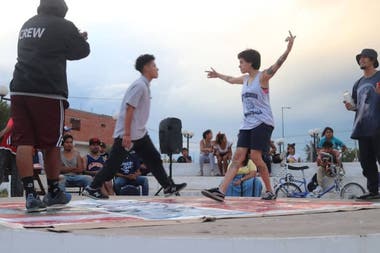
One of the central points of the program is that boys and girls truly position themselves as agents who can transform the reality of their neighborhoods and of other adolescents who are in the same situation. That are active subjects of your community. The idea is not to work from adultcentrism or from confrontation, but let them promote healthy relationships themselves and affective ties based on the right to tenderness, which is deeply related to the core of the Trato con Arte project. According to a study by the Catholic University of Salta, 9 out of 10 adolescents state that they have experienced some type of dating violence or between peers.
“Art, in its different manifestations, is a tool that allows us to make these issues visible. To address them we must first put them into discussion,” says Lorena in relation to how her approach to work affects the prevention of unplanned teenage pregnancy. In groups and workshops, they get girls and boys to put into words what is happening to them. “It is not enough just to ensure access to contraception, you have to generate another type of approach, you have to think about the child sexual abuse, in the domestic violence, on how the judicial system is working in these cases, if it arrives on time or not, also in the articulation with the health centers. We must begin to put this problem on the table and reveal what the causes are, “he concludes.
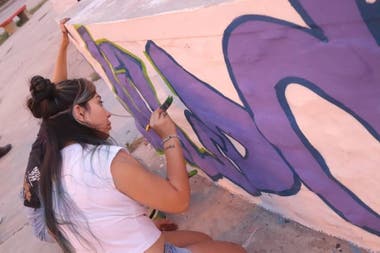
Time to replan
The Manos association is present in two parts of Salta: Juan Manuel de Rosas in the north of the capital and the Solidaridad neighborhood in the southeast, where they created a socio-cultural center. Covid-19 forced them to reorganize and one of the most important investments they made was in connectivity, they hired Internet service and upgraded devices for those neighbors who did not have them.
In order to maintain the link with young people, they strengthened the work through social networks, held communication workshops, set up work platforms through WhatsApp, Facebook groups to continue with the debates and through YouTube they seek that boys and girls redefine their role and become promoters communications, in addition to health, to generate content from virtuality and continue talking about the sexual and reproductive rights, but also about how the pandemic impacts their neighborhoods.
How to contact Asociación Manos
www.asociacionmanos.org; +54 387 453-4744; Instagram: @manosasociacion; Facebook: @ Asoc.Manos
According to the criteria of
More information
.
Publicado en el diario La Nación

